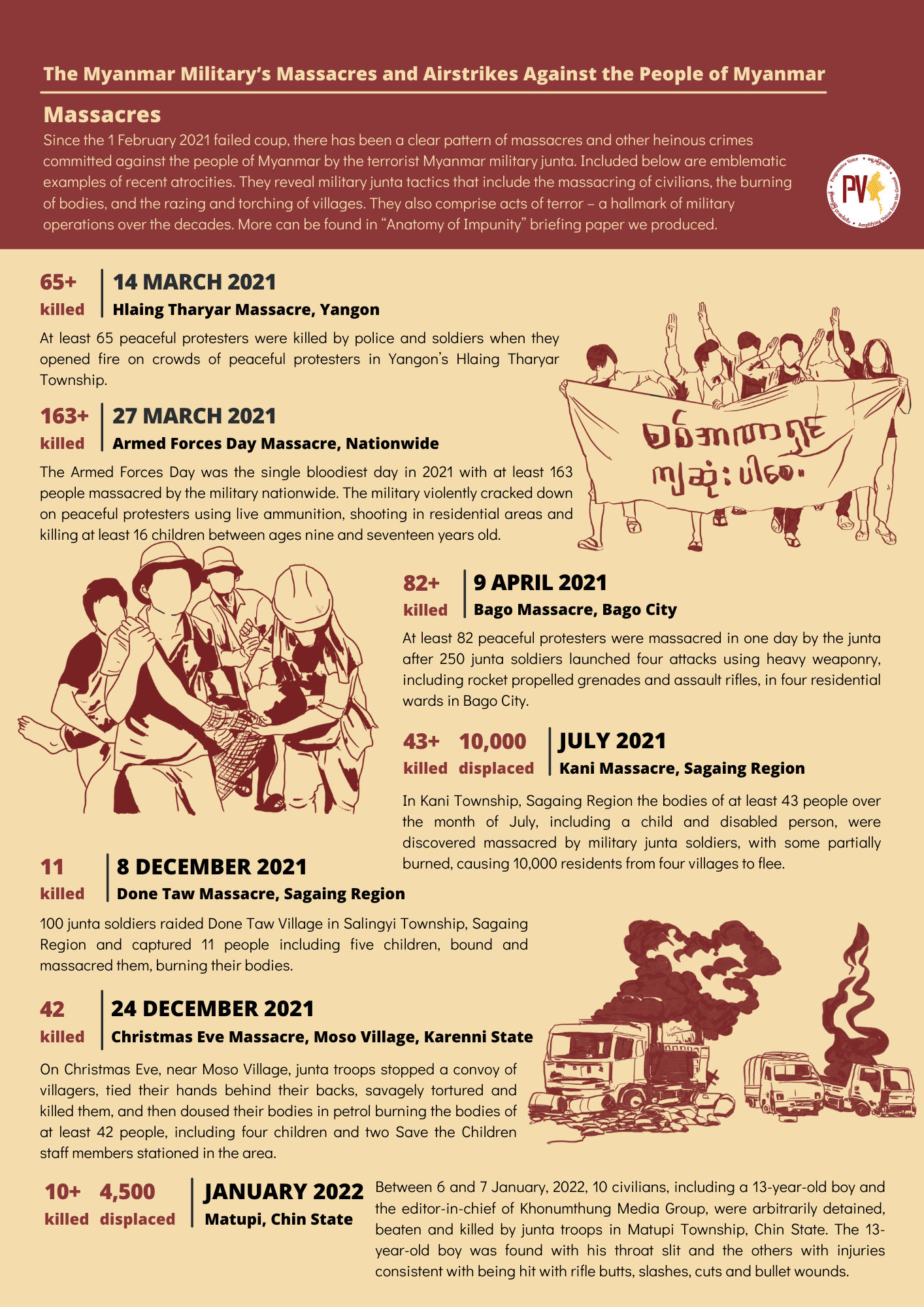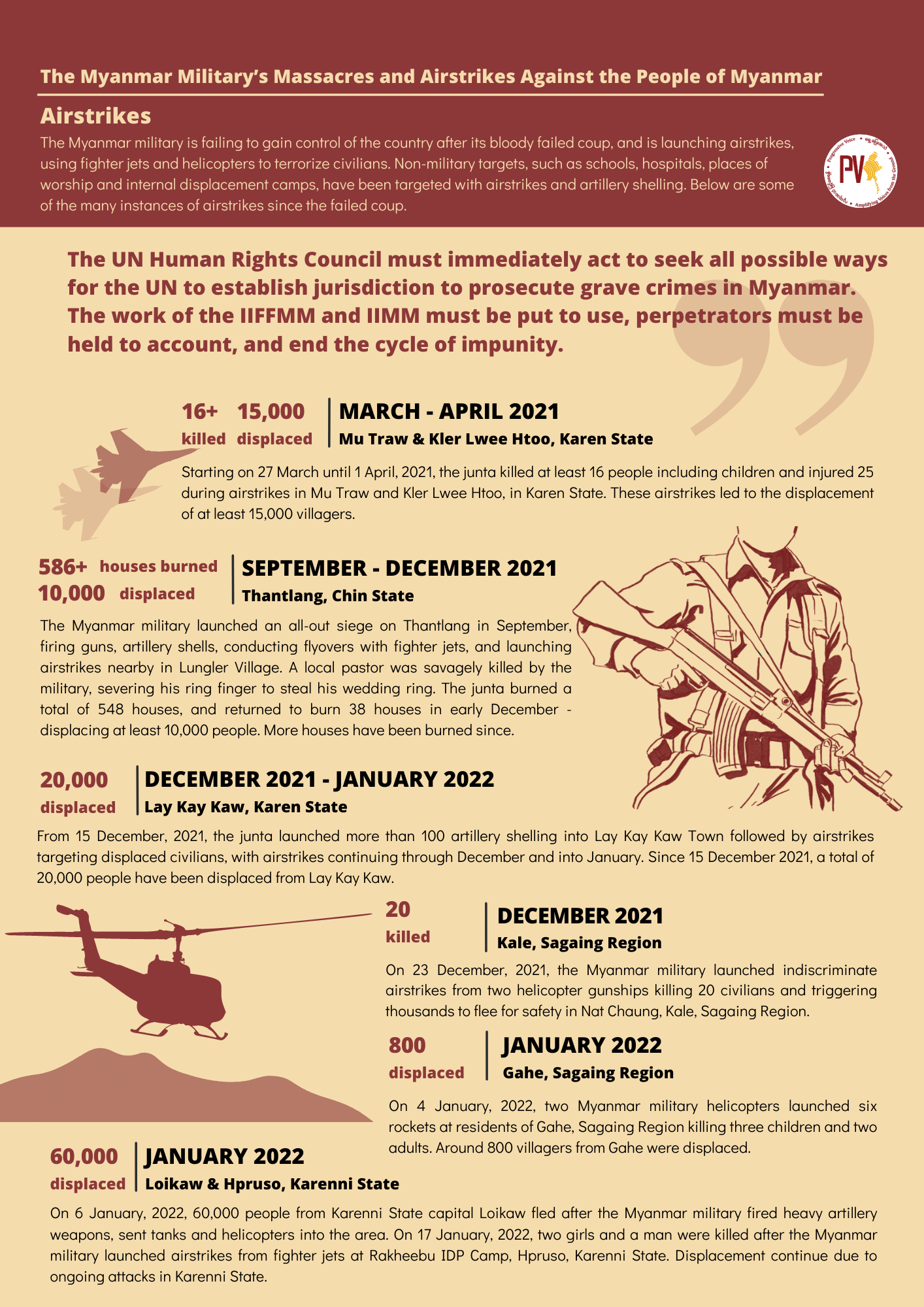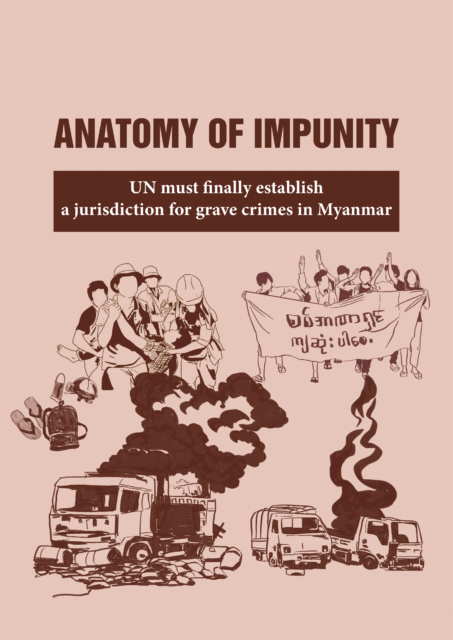Anatomy of Impunity – UN must finally establish a jurisdiction for grave crimes in Myanmar

Introduction
The United Nations (UN) Human Rights Council has passed over 20 resolutions on Myanmar over 15 years since the establishment of the Human Rights Council.
These resolutions have mandated 15 years’ worth of reporting by the Office of the High Commissioner for Human Rights (OHCHR), successive Special Rapporteurs on the situation of human rights in Myanmar, and the Independent International Fact-Finding Mission on Myanmar (IIFFMM).
For 15 years those reports have made known to the Human Rights Council the human rights violations, abuses and atrocity crimes committed by the Myanmar military and security forces against the people of Myanmar, in particular Myanmar’s ethnic and religious minorities. The reports document extensively the excesses of the Myanmar military fueled by the crisis of impunity in the country, and repeatedly warn that the military atrocities will escalate if impunity is allowed to persist.
In 2016 and 2017 the Myanmar military’s violence escalated to the point of genocide against the Rohingya. The IIFFMM subsequently called on all competent organs and agencies of the UN to act with urgency to ensure that the leaders of the Myanmar military were held to account and investigated and prosecuted for war crimes, crimes against humanity and genocide.
The Human Rights Council established the Independent Investigative Mechanism for Myanmar (IIMM) in 2019 to collect evidence of the most serious international crimes and violations of international law in Myanmar and to prepare files for criminal prosecution. But the IIMM is not a court or a prosecution service. Unless a full jurisdiction for Myanmar is established, the IIMM will be collecting evidence indefinitely.
In the time since the IIMM began its work, the human rights situation in Myanmar has deteriorated drastically. The tactics used by the Myanmar military during the genocidal atrocities against the Rohingya – including massacres, arson attacks and aerial assaults – are now directed by the military against civilians across the entire country in a widespread and systematic pattern.
If the Human Rights Council fails to respond appropriately, it will embolden the military to commit further grave and large scale violations of international law. This would feed the military’s long held and deeply entrenched belief that the international community is a paper tiger, simply documenting and condemning its behavior in endless reports.
The Human Rights Council must therefore explore all possible ways for the UN system to establish a jurisdiction to prosecute serious international crimes in Myanmar, putting the work of the IIMM to full use in bringing alleged perpetrators of atrocity crimes to justice and ending the devastating cycle of impunity once and for all. The people of Myanmar cannot wait any longer.
Recommendations to the Human Rights Council
- Explore all possible routes to seek accountability for Myanmar through the establishment of a jurisdiction for atrocity crimes mandated by the UN.
- Recommend the UN Security Council adopt a resolution referring the situation in Myanmar to the ICC.
- Call on the ICC to accept the declaration lodged by the Myanmar government, the NUG, under Article 12(3) of the Rome Statute accepting the Court’s jurisdiction with respect to international crimes committed in Myanmar territory since 1 July 2002.
- Support Ambassador Kyaw Moe Tun, appointed by the NUG whose credential has been retained by the UNGA, to represent Myanmar at the HRC.
- Urge ASEAN to seek assistance from, and cooperate with, the international community, the UN Security Council and the UN Secretary-General.
- Coordinate and call on the international community to impose a global arms embargo on the military junta, and an embargo on aviation fuel to end airstrikes.
- Call on businesses and UN Member States to cut ties with the Myanmar military leadership, military affiliated businesses, its partners and network of arms dealers.
- Call on bordering countries, especially Thailand, India, and Bangladesh, to open their borders to allow and facilitate the unhindered delivery of humanitarian aid into Myanmar.
- Call on the international humanitarian community to consult and coordinate with the NUG and ethnic revolutionary organizations (EROs)/ethnic armed organizations (EAOs) and to support the provision of humanitarian aid through local humanitarian aid organizations, civil society organizations and ethnic health and service provision organizations including through cross-border channels.
See the infographics: The Myanmar military’s massacres and airstrikes against the people of Myanmar




